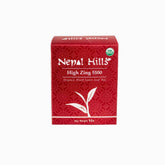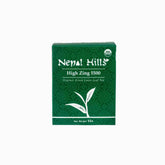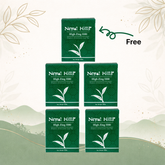My experiences with tea and ways to improve tea tasting
Like some of you, I started my tea journey when I was very young but was exposed to variety types of teas in my adult years. So naturally there was a learning curve about teas and tea drinking experiences.
I am going to share some of my tea experiences as well as techniques that I learned over the course of last 15 years of tea drinking.
For the ease of understanding, the content will be categorized by topics:
1. Types of Teas: Basic category of Tea includes Black, Green, White and Oolong Tea. I was familiar only with Black Tea (and we used to drink with milk) until I was a teen. In my adulthood, I started drinking green tea but omitted due to it being bitter. I was exposed to the taste of White Tea 8 years ago and I adore properly made white tea. I did not know much about oolong tea until 4 years ago.
2. Green Tea does not need to be bitter: You can omit bitterness in Green Tea buy implementing proper brewing techniques, plus by cold steeping but the inherent bitter character of green tea can be minimized by altering production technique. I found that green tea is not necessarily bitter if produced and steeped in a certain way.

3. Tea is diuretic: I stopped drinking coffee regularly due to excessive high Caffeine but realised that Tea is diuretic (makes you go to washroom frequently). So, to address this, I started making second steep using whole leaves tea, which has lesser strength than the first cup.
4. Learning Properly steeping tea: Learning how to properly steep tea improves tea experience. The taste becomes more prominent, and you can enjoy it better.
5. Whole leaves Tea improves tea experience: Growing in the tea farm of Nepal, we were used to drinking hand rolled tea (whole leaf). In my later years I drank broken tea, but once I was exposed to whole leaf tea and read the benefits of Whole leaf Tea, I started drinking whole leaf. Whole leaf tea steeps slowly and will give you higher level of aroma and diverse flavour.
6. Water Quality Impacts Tea: I used to wonder why I has different taste of the same tea when I was in different locations. Later realised that the water quality has a huge impact on tea taste. Water with lesser minerals is much better to have smooth quality of cup of tea.
7. Floral Teas don’t need milk: Traditionally, we used to drink tea with milk. I later found that we did that because of the bitterness of the black tea. One of the reasons was because we were boiling it, instead of steeping and second reason was that the black teas were overly fermented (when we hand rolled). Floral teas on the other hand do not need milk. They are lesser fermented plus they have little amount of bitterness in comparison to malty teas.
8. Not everyone likes White Tea: So, I have experimented with my guests to find what they think about the white tea. Lot of them felt as if it was like water. My experience drinking white tea tells me that: Not everyone can taste white tea, quality of white tea determines the aroma and taste of the brew, and you need to follow time and temperature rule meticulously if you want to taste white tea. PS. Use a little more tea leaves if you want the taste to be prominent.
9. Blended Teas do not do the justice: Teas are blended basically to mask the staleness or astringency and/or bitterness. Once blended the original tea loses it’s nature (aroma and smell) and the added flavor takes over. At this point it is not true tea. Drinking Pure and quality tea will give you the satisfaction that no blended tea can give you. I have tried multiple blended teas including the Earl Grey, but I did not like it.
10. Don’t consume Green Tea on Empty Stomach: Drinking green tea early in the morning has often made me nauseate early in the morning. That is why I made it a habit to have breakfast and drink the tea later. This helped me avert any bad experiences with green tea.
I hope you found the above helpful. Please comment if you would like me to share more information about my experience on Tea, I will update the blog as requested.

About the Writer - Bhaskar Dahal
Bhaskar Dahal is a tea enthusiast and loves to experiment and share tea recipes and contents. He is also passionate about supporting tea artisans and farmers. Being raised in a tea farm and grown in a tea producer family, Bhaskar shares the first hand story of Tea from Nepal.






